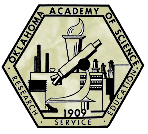
|
 |
|
{Page 155}
| Bob Freeman | Otis Dermer | A Recent Book | The Future | Top of Page | Table of Contents | Home |
POAS is losing two valuable members. Over the years, Bob Freeman and Otis Dermer have performed service to OAS and especially POAS. We will miss them.
Bob Freeman
| Bob Freeman | Otis Dermer | A Recent Book | The Future | Top of Page | Table of Contents | Home |
One of the more thankless jobs in producing any journal is to take the author's words and turn them into type. Years ago, this meant hand-setting type or working at the hot lead typesetting machine. With phototypesetting, the drudgery and dirt left that job. In its place was the need to learn computer hardware and software. If you have ever struggled with a simple formatting of a file, you can begin to understand the potential frustration of formatting a file for producing galley proofs. Bob has done excellent job.
Thanks, Bob, for all those years of excellent service to OAS and the scientific community.
Otis Dermer
| Bob Freeman | Otis Dermer | A Recent Book | The Future | Top of Page | Table of Contents | Home |
Another job on any journal is to take the author's words and produce a smooth, coherent text. Rarely do you ever hear about the editor whose job is to make the author look (and read) good. (Otis would descend on that last sentence with a flurry of red or blue pencil markings). If you have ever had one of your manuscripts edited by Otis, you know what I mean. Students are always shocked when they receive a paper that their teacher has marked not because of the grade (well, that could also be a factor), but because they may not immediately recognize that they had written it. Time between drafts and reviewing is critically important to any author. So too is an editor with a sharp and discerning eye. Otis had a "feel" for the language and he could do wonders with a manuscript.
Thanks to you also, Otis, for all your many years of making POAS authors readable.
A recent book
| Bob Freeman | Otis Dermer | A Recent Book | The Future | Top of Page | Table of Contents | Home |
There are always new books appearing on the market and it is impossible to keep up. We are lucky to have such places as amazon.com to look for titles that we need. For authors, one in particular is worth mentioning. In 1948, Reginald Kapp, an electrical engineering professor at University College, London, decided that his students were not producing technical reports and articles that were well written (sound familiar?). He gave a short series of lectures and the demand was so high that he published them in a small book entitled The Presentation of Technical Information. There was a 1962 re-issue of it with some editorial changes. Still, by 1963, it was hard to find in this country. Now, the professional society of technical authors (communicators) in England has re-issued it in a third edition. The reason this is important to writers in any discipline is that there are a few really excellent "little" books on writing, Strunk and White's book comes to mind. Kapp's book is another one of these little gems that encapsulate so much wisdom in a few pages that it is hard to believe textbooks on writing these days run to 600 pages or more. While Kapp was in engineering as were his students, the precepts of this book apply to any kind of writing. Check it out at http://istc.org.uk
The future
| Bob Freeman | Otis Dermer | A Recent Book | The Future | Top of Page | Table of Contents | Home |
This volume closes the second issue that I have been privileged to work on as the Editor. I hope that the papers and notes have been easy to read and understand. If you can find the information you need and can then understand it, my job (and the jobs of the entire editorial team) has been done. But, we are not resting on what we have done before. Here are some of the things I hope we can do for the next volume (79):
1. Get a broader involvement from members of OAS. Each of the two issues have had papers from disciplines other than the biological sciences. I hope that that continues, so I encourage you to encourage your colleagues to send papers.
2. I hope to get more involvement from graduate students. We have published a few
{Page 156}
papers from graduate students before and I want you to encourage yours to revise a seminar paper and submit it for consideration. If you have a student looking for a project, what about an update on the year's activity in his or her speciality, a year-in-review, where the student surveys the scholarship in an area and writes a paper for publication?
3. Another potential source for papers is the Junior Academy. I hope that they will consider taking their papers, revising, and submitting them to me for consideration. In both cases (the graduate students and the members of the Junior Academy), you have the opportunity for a refereed publication. How many of your classmates have had a paper published in a refereed, archival journal?
So, send me your papers, notes, reviews by March 1, 1999 (our new deadline for submitting manuscripts). All the information you need is here in this issue ("Instructions to Authors"), and you can always send me an email (twarren@okstate.edu) or call me (405 744 9470) for more information.
Tom Warren
| Bob Freeman | Otis Dermer | A Recent Book | The Future | Top of Page | Table of Contents | Home |